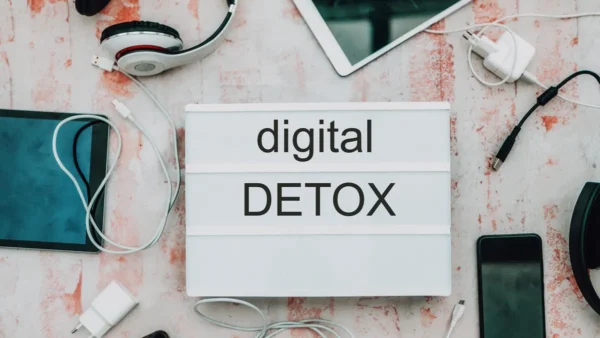
Welcome to the final chapter of our Stress Awareness Month journey, where we culminate our exploration with a focus on practical strategies to master the art of stress management. We’ve delved into the understanding of stress in the modern world, identified triggers, and built resilience. Now, armed with insights, let’s embark on a transformative quest towards a balanced and fulfilling life.
Crafting Your Stress Management Toolkit
- Holistic Well-being Practices: Stress management goes beyond fleeting remedies; it’s about cultivating a holistic approach to well-being. Explore practices like yoga, meditation, and deep breathing exercises to create a foundation for inner peace. These activities not only alleviate stress in the moment but contribute to long-term emotional resilience.
- Time Management and Prioritization: Effectively managing your time and priorities is a powerful stress management tool. Learn to distinguish between urgent and important tasks, delegate when necessary, and embrace the concept of “good enough.” By setting realistic expectations and boundaries, you create space for a more balanced and fulfilling life.
- Mindful Nutrition and Physical Activity: The connection between physical health and stress management is undeniable. Nourish your body with mindful nutrition, incorporating a balance of whole foods and hydration. Regular physical activity releases endorphins, reducing stress hormones and promoting a positive mood. Find joy in movement, whether it’s a brisk walk, a dance session, or a calming yoga practice.
- Digital Detox and Unplugging: In the digital age, a constant stream of information can contribute to stress. Practice periodic digital detoxes, set boundaries for screen time, and create tech-free zones in your home. Unplugging allows you to reconnect with the present moment, fostering a sense of calm and reducing the mental clutter that often accompanies technology.
- Cultivating Gratitude and Positivity: Shift your focus from what causes stress to what brings joy and gratitude. Keep a gratitude journal, acknowledging the positive aspects of your life. Surround yourself with positivity, whether through uplifting literature, inspiring podcasts, or meaningful conversations. Cultivating a positive mindset enhances resilience and transforms your approach to stress.
Creating a Balanced Life
- Setting Realistic Goals: Embrace the power of realistic goal-setting. Break down larger objectives into manageable steps, celebrating small victories along the way. This approach fosters a sense of accomplishment, reduces overwhelm, and allows you to maintain equilibrium in your pursuits.
- Embracing Self-Care Rituals: Prioritize self-care as a non-negotiable aspect of your routine. Whether it’s a quiet moment with a book, a soothing bath, or a creative outlet, dedicate time to activities that replenish your energy and nourish your soul. Recognize that self-care is not a luxury but a fundamental component of a balanced life.
- Continuous Learning and Adaptability: The ability to adapt and learn from experiences is fundamental to stress management. Cultivate a growth mindset, viewing challenges as opportunities for learning and personal development. This adaptability empowers you to navigate the ever-changing landscape of life with resilience and grace.
As we conclude our exploration of stress during this awareness month, remember that the journey towards a balanced life is ongoing. By integrating these practical strategies into your daily routine, you equip yourself with a personalized toolkit for mastering the art of stress management. Embrace the process, celebrate progress, and savor the moments of tranquility on your path to a more balanced and fulfilling life.
Thank you for joining me on this transformative journey. May the insights gained during Stress Awareness Month serve as a compass for navigating life’s challenges with resilience, mindfulness, and a commitment to well-being.

In a world where digital connectivity is both a necessity and a potential source of overwhelm, the concept of a digital detox is undergoing a profound transformation. What was once perceived as an extreme or ostracizing practice is evolving into a mainstream and balanced approach to well-being in 2024. This blog post explores the shifting perceptions surrounding digital detoxes, the driving forces behind this evolution, and why disconnecting from the digital realm is becoming a vital aspect of holistic self-care.
The Digital Dilemma
As our lives become increasingly intertwined with technology, the need for periodic disconnection has never been more apparent. The constant barrage of notifications, social media updates, and digital demands has led to a collective sense of digital fatigue. Recognizing the impact on mental health, relationships, and overall well-being, individuals are seeking reprieve from the digital deluge.
The Stigma of Disconnecting: A Shift in Perception
There was a time when taking a break from digital devices might have been met with skepticism or perceived as an antisocial act. However, the narrative is changing. In 2024, the stigma associated with digital detoxes is dissipating, making room for a more empathetic understanding of the need for balance in our tech-infused lives. Disconnecting is no longer viewed as an act of isolation but as a deliberate and commendable choice for self-care.
The Mental Health Imperative
The pervasive nature of digital connectivity has underscored the importance of safeguarding mental health. Digital detoxes are increasingly recognized as essential for combating digital burnout, reducing stress, and fostering a sense of mental clarity. As mental health takes center stage in societal conversations, the idea of stepping back from digital distractions is gaining legitimacy as a proactive measure for well-being.
Reclaiming Presence: Disconnecting to Connect
The paradox of our hyper-connected age is that, at times, we feel more disconnected than ever. Digital detoxes are emerging as a remedy, offering individuals the opportunity to reclaim presence in their lives. Whether it’s spending quality time with loved ones, engaging in outdoor activities, or simply relishing moments of solitude, disconnecting from the digital realm allows for a more authentic and meaningful connection with the world around us.
Balancing the Digital Diet: A Holistic Approach
The evolving perspective on digital detoxes is rooted in the recognition that balance is key. Rather than an all-or-nothing approach, individuals are adopting a more nuanced and holistic view of their digital consumption. It’s about curating a healthy digital diet that aligns with individual needs, allowing for intentional use without sacrificing well-being.
A Digital Renaissance
In 2024, the evolution of digital detoxes signifies a broader cultural shift—a renaissance in our relationship with technology. Disconnecting is no longer seen as an extreme measure but as a conscious and empowering choice. As individuals navigate the digital landscape with greater mindfulness, the concept of a digital detox becomes a tool for reestablishing balance, fostering well-being, and reclaiming a sense of agency over our digital lives. In the pursuit of a harmonious coexistence with technology, the digital detox has found its place not as an outlier but as an integral component of a holistic and mindful approach to modern living.
